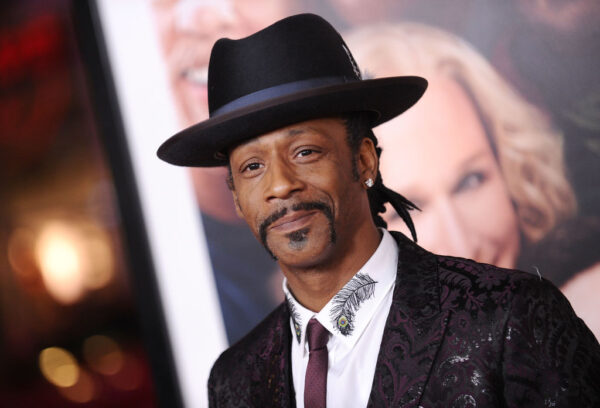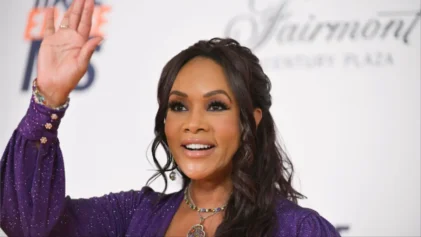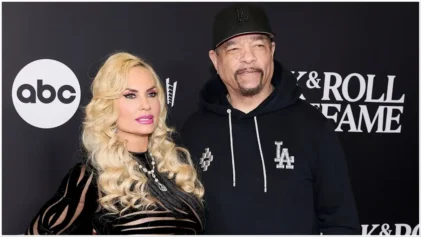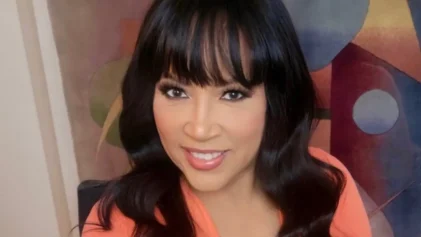Katt Williams was placed in an uncomfortable position during a recent interview. The comedian, known just as much for putting people on blast as he is for tickling people’s funny bones, had figured out how to wriggle out a conversation that he believed could have gotten him canceled.

While appearing on the “Joe Rogan Experience” podcast, episode No. 2111, the “Dark Matters” comic found himself talking about buying cigarettes in the state of California.
“So you can’t sell menthol cigarettes in California,” Rogan asked in a clip circulating on social media.
Williams agreed, saying, “Right, they have their own cigarettes non-menthol Newport. It’s terrible.”
Without skipping a beat, Rogan jumped in and queried, “Why do Black people like menthol so much? What’s that about? It’s a totally different type of cigarette.”
Flustered, the “Pimpin’ Pimpin” star said, “You’re going to get me canceled. This is very racist. This conversation, even though neither of us are. Go figure.”
The podcaster was shocked and pushed forward asking how just talking about something that could appear to be racist would get them in hot water.
The funnyman tried to get serious and attempted to explain, that not only would the statement be perceived as racist, but so would he, as a Black person, if he answered the question.
Rogan attempted to argue his point, saying that if Williams were to ask him “about spaghetti” he would not be offended.
Quickly, the “Friday, After Next” actor clapped back, “How many people have ever died of pasta-related [deaths]?”
As expected, social media exploded after watching the 1:13 minute-long excerpt from the nearly three-hour interview.
“20 minutes into the Katt Williams JRE interview… Joe Rogan: “Why do black ppl love menthol cigarettes?” one person posted on X.
20 minutes into the Katt Williams JRE interview…
— Hootie👊🏽 (@HootieBEATS) February 29, 2024
Joe Rogan:
“Why do black ppl love menthol cigarettes?”
🤦🏽♂️😂😂😂😂😂😂😂💀
Some people suggest that maybe the comedian should be canceled.
“The whole Katt Williams thing has run its course….. Went from talking about “Those people” to going on ‘those people’s platform,’” another person said. “Then when Joe Rogan gives you the [ninja emoji] test with the menthol joke you fold …. My father always told me “if you ever want to see what a black man is really about watch how he acts around YT folks after they sneak in a Joke’ Yeahhhhh.”
Others thought he handled the questions with skill and tact. “Katt Williams delivered the most eloquent answer to the menthol question,” a third X user observed.
One person opted to answer Rogan’s question with a fact: “The answer is because they were marketed specifically to that audience.”
The answer is because they were marketed specifically to that audience.
— Tonya Pendleton (@TonyaPendleton) February 29, 2024
According to UNDO.org, cigarette companies targeted communities of color with menthol products, distributing them for free as part of Big Tobacco’s strategy to hook and retain Black individuals on menthol cigarettes. This predatory approach, disguised as support for the Black community, resulted in nearly 70 percent of adult Black/African-American smokers in California using menthol cigarettes, the highest among any demographic.
For almost a century, Big Tobacco has infused menthol flavoring into cigarettes to mask the harsh taste of tobacco, making the toxic smoke more palatable. The smoothness of menthol facilitates deeper inhalation, allowing harmful particles to settle lower in the lungs and making quitting harder for users.
The availability of menthol cigarettes has grave consequences, with estimates suggesting that over 320,000 deaths could have been prevented by 2050 if a menthol cigarette ban had been implemented in 2011.
In 2020, Democratic California Gov. Gavin Newsom enacted a law prohibiting all flavored tobacco items, including menthol cigarettes and vaping products with flavors like cotton candy, amidst worries over increased e-cigarette and tobacco consumption among adolescents.
R.J. Reynolds Tobacco Company attempted to contest a voter-endorsed initiative. However, the U.S. Supreme Court refused to review the case, allowing the state’s law to stand.


